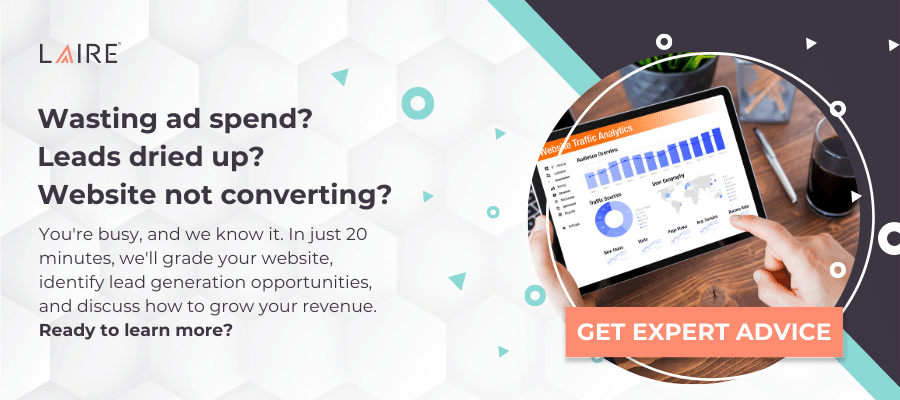Search results, whether organic or paid, are how potential customers find your website and company when they are researching similar products or services on search engines like Google.
While most businesses use a combination of website traffic sources, we're going to break down the difference between paid vs organic search — as well as the pros and cons of each. Let’s get started.
What Is Organic Search?
Organic search is website traffic from search engine results that is earned — not paid for. Ranking organically is accomplished through search engine optimization (SEO).
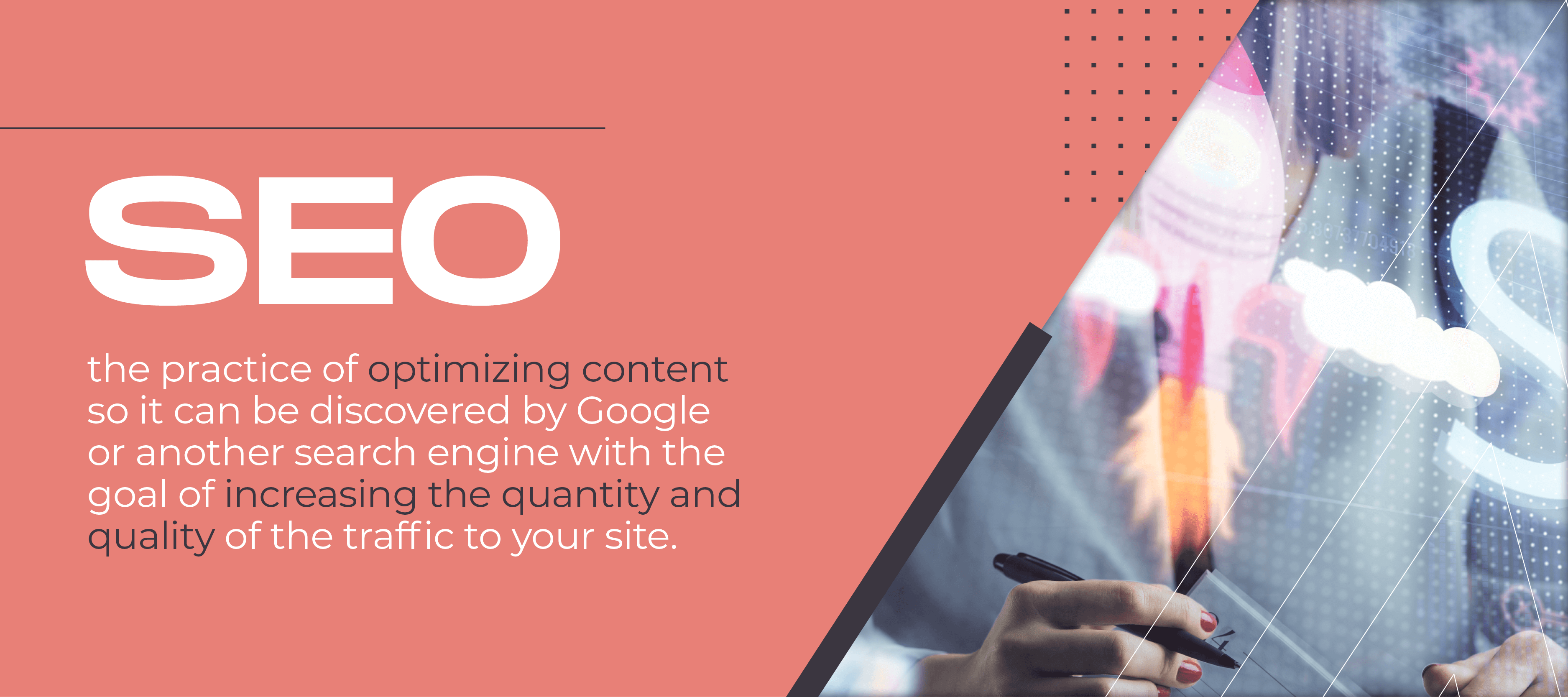
SEO is the practice of optimizing content so it can be discovered by Google or another search engine with the goal of increasing the quantity and quality of the traffic to your site. This involves having keyword-rich content on your website and ensuring that it is presented in a way that a search engine can read it clearly and see value in what you are saying.
Organic search results are populated based on relevancy to the user's search query, backlinks, and domain authority, plus other ranking factors.
At LAIRE, Google is the primary search engine that we optimize for. Your SEO efforts to perform well on Google will also improve your ranking on other search engines like Bing or Yahoo.
Organic Search Results Example
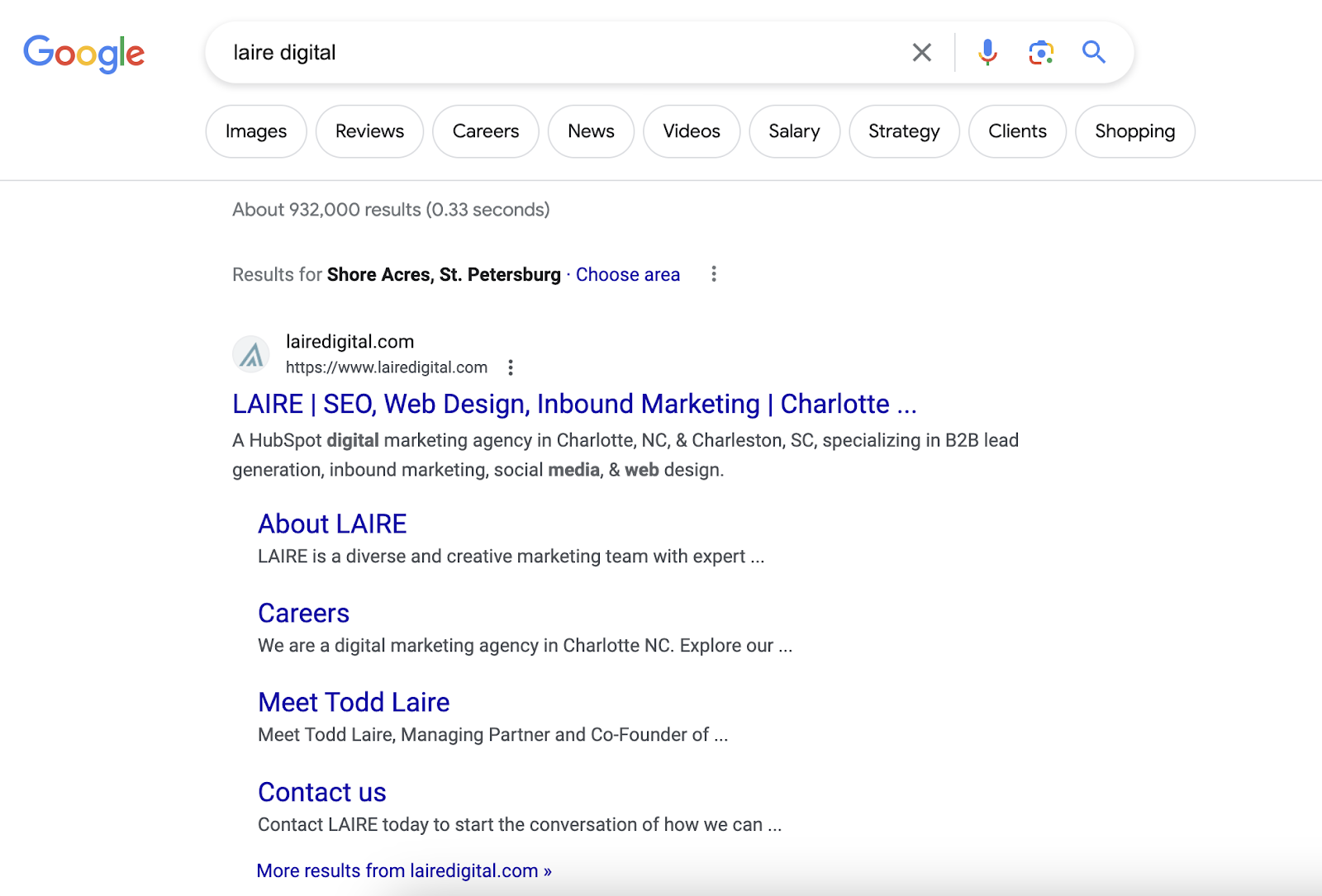
SEO Cheat Sheet: Strategies for Improving Organic Search Results
Creating an effective organic SEO strategy can seem like a complex task, but it's crucial to understand the ins and outs of the process.
Use Keywords Your Prospects and Customers Are Searching For
To elevate your website's visibility and achieve success in improving organic search results, you must gain insight into the specific keywords your target audience is employing to discover your products, services, and business offerings.
Before selecting your target keywords, study your company's niche and speak with your customers on areas of interest. How would they describe your brand? What pain points have they felt that you have helped them solve?
By doing this, you'll be able to put yourself in the shoes of your potential customers and gain valuable insights into what they're looking for when they search.
Crafting a Keyword List
The search terms you choose should be in sync with your objectives and, ideally, organized into various marketing funnels. To accomplish this, you will want to:
- Break it down: Once you are clear on the main category of your brand, break it down further into smaller topic buckets and make a list of keywords you'd like to rank for within each category.
- Refine: Then, use tools like Moz or Semrush to refine your list of keywords and discover which ones users are searching for.
- Use keywords to create content: Once you have a list of relevant keywords, you can incorporate those into the existing content on your website and create new content optimized with these terms.
Ensure Your Content Has Internal Links and Backlinks
While keywords are a huge part of SEO, links also play an important role in ranking. The more high-quality, relevant links you acquire, the more credit the search engine will give your content.
How Do You Get Backlinks?
There are several link-building strategies you can explore, including:
- Report broken links and offer a link from your own site
- Spread the word about your business by contacting bloggers and influencers in your niche
- Ask for links from companies you already have relationships with
- Convert unlinked mentions of your business to links
- Write a guest article and link back to your site from the post
- Look at your competitors' link building strategies with tools such as Monitor Backlinks
Keep in mind that these techniques work best when you're crafting top-notch content that others genuinely find valuable and want to link to.
Also, remember that not all backlinks are created equally so it’s important to determine which links you should go after in your link-building strategy. You can use tools like:
- Google Search Console: Google Search Console gives you a snapshot of your most linked pages, who is linking to you, and the number of links. While it doesn't provide as much detail as dedicated SEO tools, it's a valuable resource, especially for monitoring how Google views your site's backlinks.
- Semrush: You can also analyze the quality of backlinks through Semrush's backlink checker, which produces page scores for all of your links so you can identify the bad ones from the good ones.
- Ahrefs: Ahrefs is a comprehensive SEO tool that provides detailed backlink analysis. It offers insights into backlink profiles, referring domains, anchor text, and more. Many SEO professionals consider it one of the best in the field.
Internal Linking for SEO
Internal links help a search engine index and understand the pages on your site. Links represent value to Google, and a high amount of internal links pointing to a certain page will signal to a search engine that the page is important.
This doesn't mean stuffing your content with as many links as possible; Google is smart enough to see this as spammy.
It's important to ensure that all the links on your page make sense both to your readers and the search engines. Here are a couple of best practices to keep in mind:
- Links should be relevant to your content and add value
- Use keyword-rich anchor text for your links
- Audit internal links in Google Search Console one to two times per year
- Add new internal links to old pages
Now, let's talk about the pros and cons of using organic vs paid search to gain traffic.
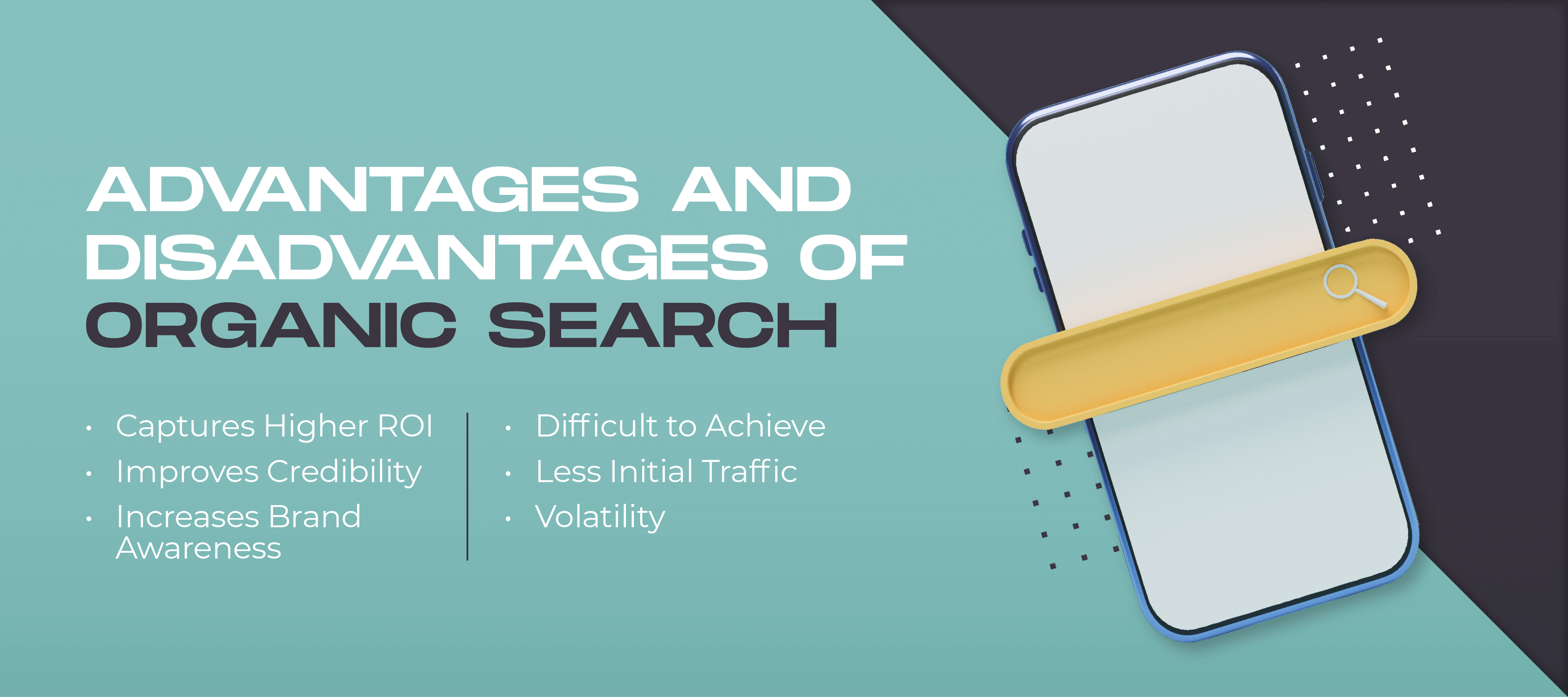
Advantages of Organic Search
1. Captures Higher ROI
There's an initial investment required to fine-tune your website and boost its visibility in organic search results. However, the good news is that once you've put in the effort and your site starts ranking well, the ongoing costs are quite minimal, if any at all.
Because the ongoing expenses are so low, the return on investment for your organically ranked website compounds as your site attracts a growing stream of visitors over time.
2. Improves Credibility
When your website earns an organic ranking, it's like a virtual thumbs-up from search engines, affirming that your content holds real value. Websites appearing on Google's first page have managed to outshine countless others vying for the same keyword spotlight and have enhanced credibility in the digital realm.
Just to put things in perspective, the top result on Google receives roughly 39.8% of all clicks. This underscores the importance of doing everything in your power to secure that coveted spot!
3. Increases Brand Awareness
People use search engines to help them answer a question or solve a problem. They may have no familiarity with your business, and seeing it in the organic results is their first experience with your brand. The more someone sees your business, the better your brand awareness will be.
There are more than 8.5 billion searches done on Google each day. That’s a lot of opportunities for businesses to get their brands in front of potential customers.
Disadvantages of Organic Search
1. Difficult to Achieve
SEO is not easy by any means. Think of how many websites exist today and how many of those might be the same or similar to your business. Every one of these websites is competing to rank on the first page.
How web users interact with the content on your website affects your organic ranking. This is where understanding search intent comes into play.
Search intent is the user's purpose for conducting a search. This can include looking for more information on a topic, finding directions to a certain location, or looking to make a purchase. To optimize for search intent, you have to understand and incorporate words and phrases in your content from their queries and, most importantly, provide a solution.
For example, someone looking to learn about SEO would probably type something like "how to rank for keywords" or "how to rank higher on Google." Your article should include quality content that reflects terms like this and answer users by educating them on the fundamentals of SEO — instead of stuffing in high-volume keywords.
2. Less Initial Traffic
Because SEO takes time to perfect, your site will not rank on the first page organically right out of the gate. Your website content needs time to build credibility as it competes with other sites that have been around longer and have already established authority.
To increase specific keyword rankings and get more traffic to your pages, you must optimize your content with keywords and phrases in a natural way that is still centered on providing value to the reader.
By creating content around key topics in your niche and using focused, informational keywords, you will attract people who will find your content useful and valuable. And if a user finds your content valuable, then Google will too, and it will reward you with a higher ranking.
Focusing on quality, educational pieces will also get your content shared on social media platforms and garner strong, relevant backlinks, both of which are ranking factors for Google.
3. Volatility
Just because you rank on the first page of the search results one day, does not guarantee that you’ll still be there the next day.
If you track your search ranking with tools such as Google Analytics, you may see your ranking go up and down repeatedly in a short time. This can be caused by several things, including:
- Competition: Other websites are vying to make it to the first page organically, thus creating competition. Stay on top of your competitors' content tactics and link-building strategies to predict their next moves so you can adjust your strategy if needed.
- Algorithm changes: Changes to a search engine’s algorithm can also affect how your site ranks. Consistently monitor keyword rankings as well as impressions and clicks in Google Search Console for negative movement. You will be notified if the drop is caused by an algorithm update or a penalty from Google.
- Technical SEO errors: Be aware of any technical SEO issues such as page speed, redirects, and server errors that could be tampering with your ranking. You can pull a full report of your site's performance in Semrush. Be sure to also pay attention to your linking profile in Google Search Console to look for broken or lost links.
- Poor UI/UX or content: Create content with your user in mind. Users (and Google) will not find your content valuable if it comes with a poor user experience, and the search engine may dock you in rankings if the reader's expectations are not met. Structure your content so that it is easily "skimmable" where users can easily find the information they're looking for. Users are constantly evolving so be sure to continuously update your content to match their intent.
What Is Paid Search?
Paid search, also known as pay-per-click (PPC), means you pay for your site to rank in the search results. The most common paid ads are search engine text ads which look similar to organic search results.
Paid search ads will be marked with the word "Ad" and appear first on the results page.
Paid Search Results Example
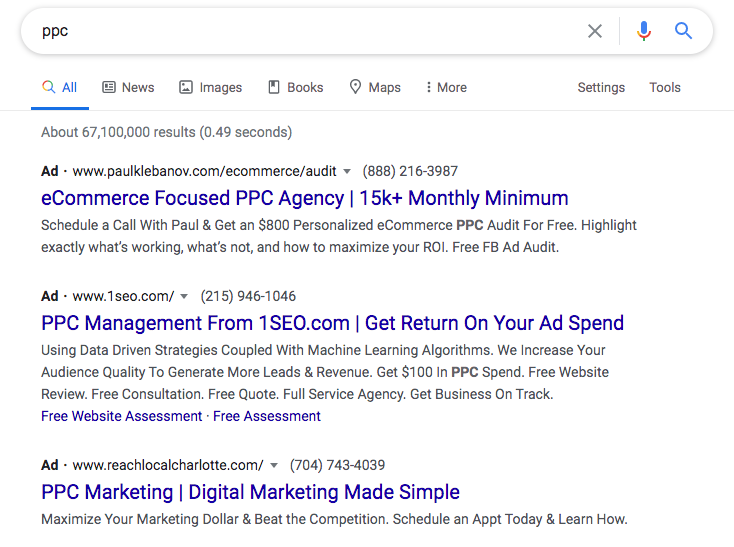
How Does Paid Search Work?
Paid search ads appear based on an auction with businesses bidding on certain keywords that they want their ad to show up for. The closer your keyword matches the user's search query, the easier it is to rank highly.
While the keywords you select are crucial, there are several factors that determine ad rank — all of which are calculated into your quality score, which is how pertinent and useful the ad is for the end user. There are three major components to your quality score:
- Landing page experience: The relevancy and usability of the page including mobile-friendliness and load time.
- Ad relevance: Does your ad adhere to what the user is looking for?
- Expected click-through rate (CTR): How likely your ad is to be clicked. This is estimated using your historical performance and competitors' performance, as well as the ad features you are using.
Programs like Google Ads have created easy-to-use tools so that anyone is able to set up a PPC account to create and manage their ads.
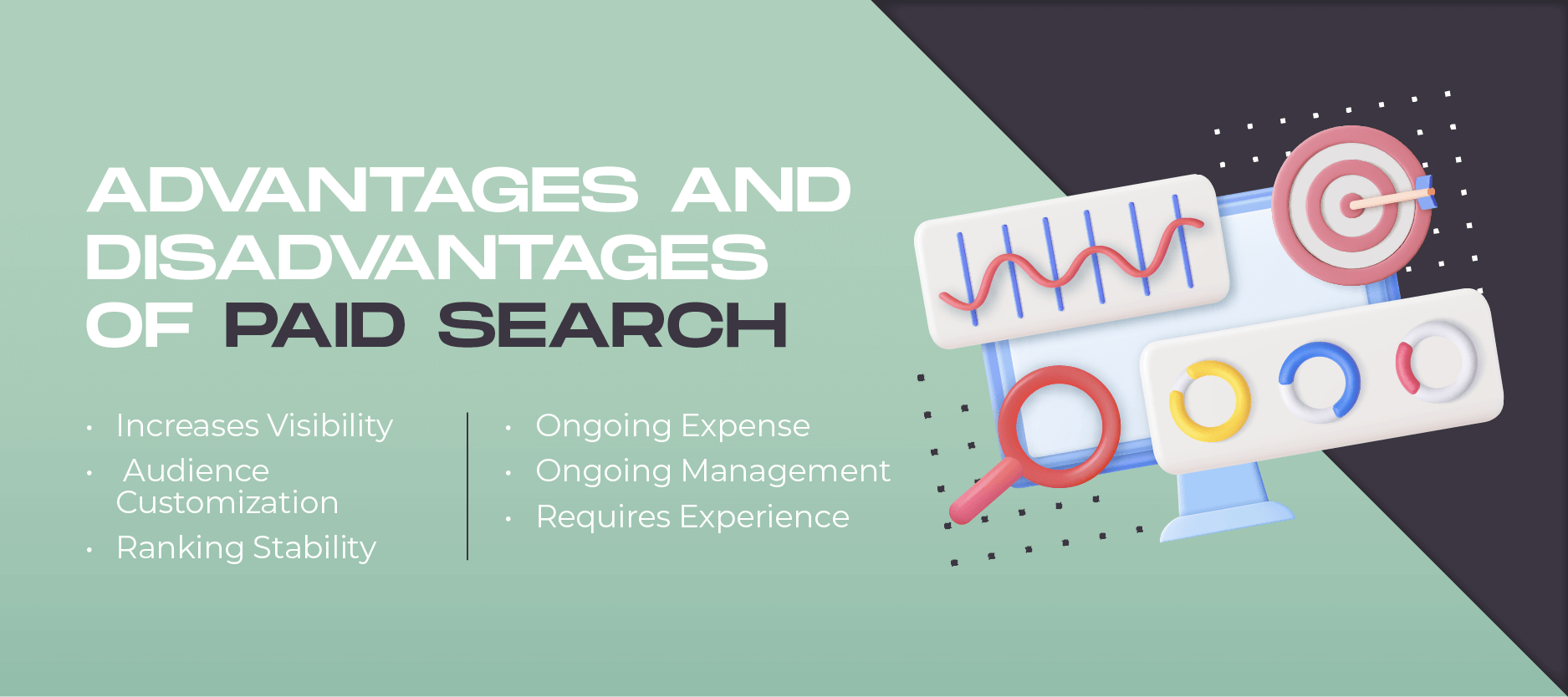
Advantages of Paid Search
1. Increases Visibility
After setting up your PPC account and choosing the keywords associated with your business, your ads have the potential to show on the first page of the search results.
On Google, there are ad spaces above and below the organic search results. Depending on your budget, keyword competition, and ad rank, you could see your ads on the first page of Google within 24 hours of setting up your account, alongside organic search results that likely took months to generate.
2. Audience Customization
With PPC, you have some control over who your ads get shown to. You can select the geography, language, time of day, and interests that you want to target.
For example, if you are targeting small business owners, you may want to run your ad after working hours at night or on the weekends as this audience typically spends their time outside of work researching things that could help their business.
3. Ranking Stability
If your ad targets relevant keywords, has strong messaging, and connects to a keyword-rich web page, you can expect a relatively stable rank in the paid search results.
Just like with organic search, PPC tools want to show the most valuable content at the top of the search results. The more frequently your ad is interacted with, the better it will rank. You do not have to be the highest bidder to achieve the top position in paid search results, but you do have to be the most valuable.
Disadvantages of Paid Search
1. Ongoing Expense
Once your budget runs out, your ads will stop showing. To keep your ads showing in the paid search results, you need to maintain an ongoing budget. When comparing organic vs paid traffic, SEO comes with an upfront cost followed by little to no maintenance cost, while PPC is never free.
The size of your budget helps determine how frequently your ads are shown. A low budget may result in your ads being shown only a few times a day. Alternatively, a large ad budget that isn’t optimized well could result in a big expense with few leads.
2. Ongoing Management
Running a PPC campaign isn't a set-it-and-forget-it affair. Yes, your ads can run somewhat autonomously and bring in traffic with minimal tinkering.
However, the effectiveness of your ads and how well your budget is put to use hinges on ensuring your ads connect with the right audience. It's an ongoing process of fine-tuning and optimization to make every click count.
3. Requires Experience
Getting started with PPC is relatively straightforward. But for the most effective optimization of your ad account, having experience is a valuable asset.
Your ads might chug along decently even if you're new to PPC, but there's a wealth of tools and features you could tap into to give your ads that extra boost and make them work even better. Experience can unlock these capabilities for more impactful results.
Paid Search vs Organic Search? Use Both for the Best Results
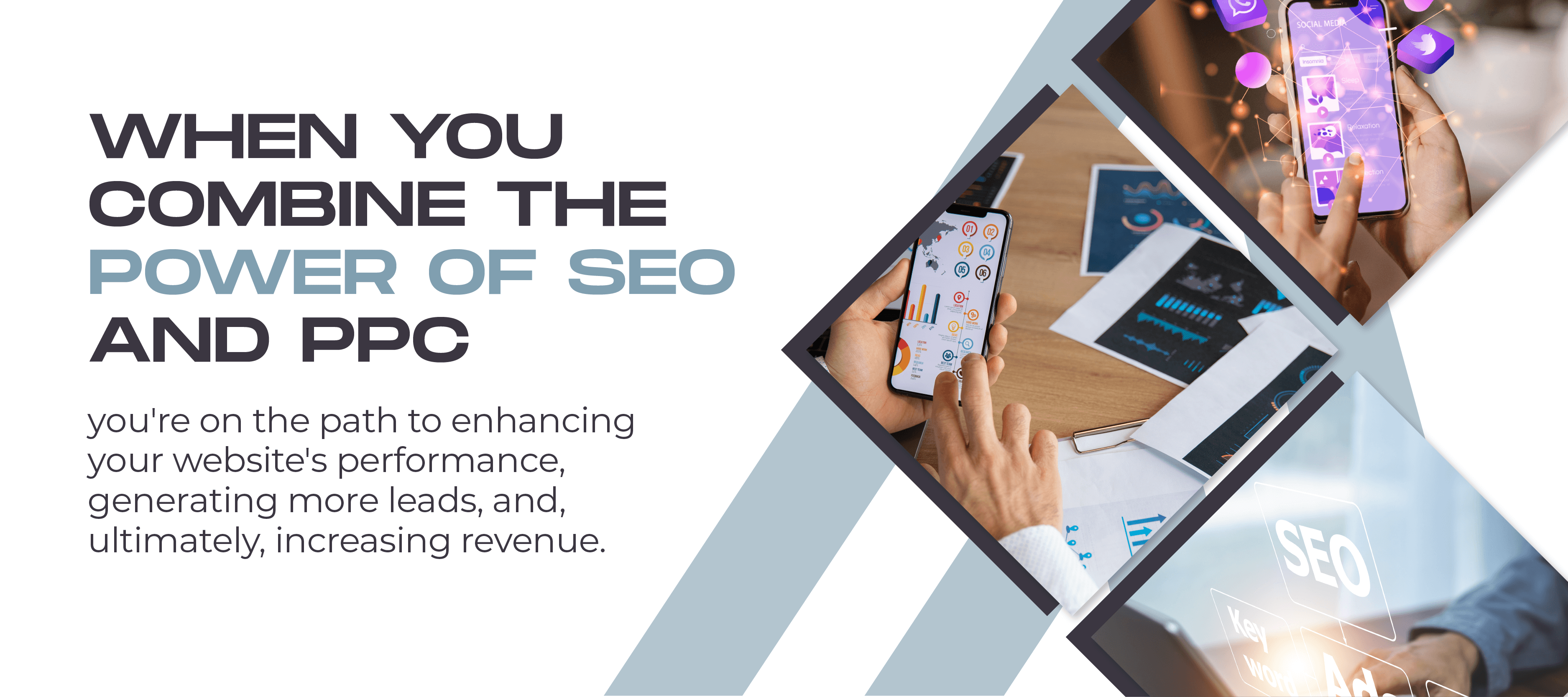
When you combine the power of SEO and PPC, you're on the path to enhancing your website's performance, generating more leads, and, ultimately, increasing revenue.
However, finding the perfect blend of organic vs paid marketing that suits your business can be a journey in itself. There's no one-size-fits-all solution. Not to mention, there are other ways to bring traffic to your website, such as social media advertising, email marketing, and more.
If this all feels a bit overwhelming, don't worry — we completely get it. Our team of dedicated PPC and SEO experts is here to assist you in achieving impressive results without the hassle of figuring it all out on your own.
Schedule a free 20-minute consultation to discuss your business's search result needs and more.

